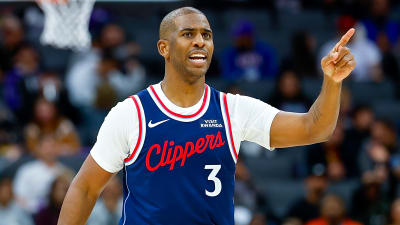
When Connor McDavid speaks, the hockey world listens. That was again the case this week when the Edmonton Oilers captain addressed questions about his next contract. His comments didn’t provide dramatic headlines or firm commitments, but they gave us a clear sense of where his mind is at: patient, thoughtful, and open to possibilities.
McDavid was direct about the process. “I said at the end of June that I want to take my time with it, and I still feel the same way,” he noted. “I’ll go through everything with my family, my agent, everybody involved. We’re going through it slowly.” For a player often described as the best in the world, that’s both reassuring and unsettling.
Reassuring, because he repeatedly stressed his “intention to win in Edmonton.” Unsettling, because he also left the door open to different outcomes. “All options are on the table,” McDavid admitted when asked if he’d be comfortable starting the season without a deal in place.
Friedman’s Take: What the Timing Really Means
Sportsnet’s Elliotte Friedman, who has tracked high-profile contract negotiations for years, noted that McDavid’s words weren’t accidental. According to Friedman, he is deliberately signalling that this process won’t be rushed. He isn’t just considering salary numbers or contract length. He’s weighing the timing—when to sign, how it aligns with Edmonton’s roster moves, and how it impacts the Oilers’ ability to contend.
Friedman suggested that McDavid wants to avoid creating distractions for his teammates, but he also wants to leverage his position. If Edmonton takes another step forward this season, he may feel more comfortable committing early. If questions remain about the team’s depth, goaltending, or front-office direction, waiting could serve him better.
What McDavid Said—And Didn’t Say
The most striking part of McDavid’s interview wasn’t what he said, but what he avoided saying. Unlike the Toronto Maple Leafs’ Auston Matthews last summer, McDavid didn’t outline a preference for contract length. Unlike teammate Leon Draisaitl, who signed his extension quickly this offseason, McDavid didn’t commit to a timeline. Instead, he left space.
“I don’t have a preference either way,” McDavid explained. “I want the group to be as focused and dialled in as possible come day one, and we don’t need distractions. So, I’ll take my time with it.”
For fans, that creates tension. On one hand, McDavid says all the right things about winning in Edmonton. On the other hand, the openness of “all options” leaves the possibility—however small—that his future could look different.
Lessons from Maple Leafs for Oilers’ Fans
This is where the Maple Leafs example becomes useful. Over the last decade, Toronto went through prolonged contract sagas with Matthews, Mitch Marner, and William Nylander. Each negotiation was different and carried its own drama, and each had a ripple effect on the roster and the fan base. The lesson is that timing matters as much as money.

Matthews chose a shorter deal, giving himself flexibility. Marner’s negotiations dragged through the summer, drawing public scrutiny. Eventually, he signed with the Vegas Golden Knights. In each case, the process shaped not only the contract but the public perception of the player.
McDavid and his camp will have studied those cases closely. They’ve seen how dragging things out can weigh on a team and a city, but they’ve also seen how shorter deals or delayed signings can create freedom. Unlike Toronto, though, Edmonton’s situation is different: McDavid already has two MVPs, a scoring title, and two trips to the Stanley Cup Final. His leverage isn’t in doubt.
What’s at Stake for Edmonton and the Oilers
For the Oilers, the timing of McDavid’s decision will shape the franchise’s direction for the next decade. If he commits quickly, management can move forward with stability, building around him and Draisaitl. If he waits, the organization faces uncertainty—something the Maple Leafs lived with when Matthews signed his five-year extension instead of a maximum deal.

McDavid says his “only focus” is to win in Edmonton. But by keeping his options open, he maintains control. Fans may crave clarity, but for McDavid, patience is power.
The Bottom Line for McDavid and the Oilers
McDavid isn’t in a rush to sign his next deal, and that’s by design. He’s signalling that winning will drive his decision, but he’s also protecting his flexibility. Friedman is right: this isn’t just about money, it’s about timing and leverage.
For now, Edmonton has the best player in the world committed to the present. Whether that commitment extends into the long future depends on what the Oilers do next.
More must-reads:
- Bruins' Morgan Geekie has shockingly become one of NHL's top goal-scorers
- Jahmyr Gibbs hit Daron Bland with the nastiest ankle-breaker of the season
- The '100-scrimmage-yard games since 2023' quiz
Breaking News
Trending News
Customize Your Newsletter
 +
+
Get the latest news and rumors, customized to your favorite sports and teams. Emailed daily. Always free!








